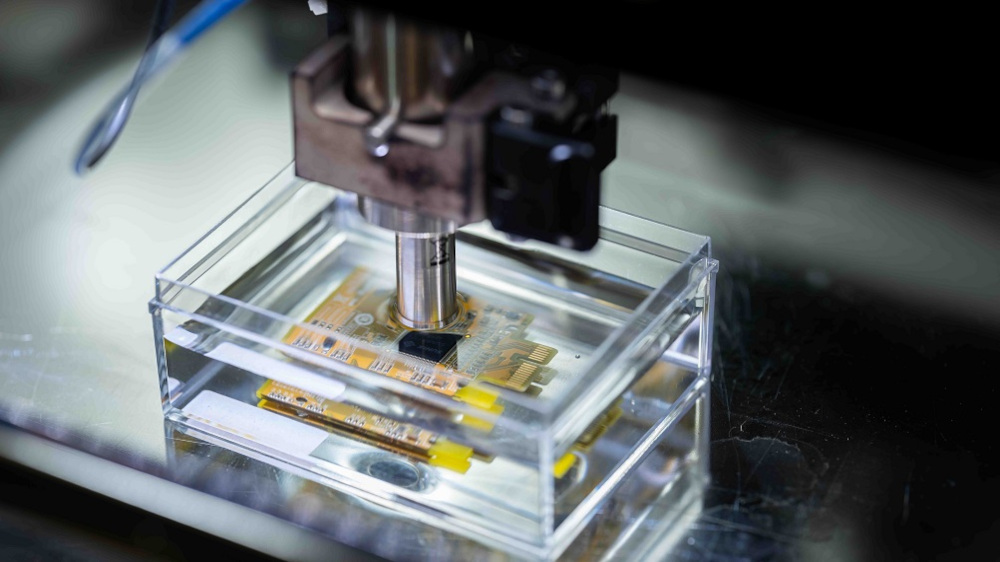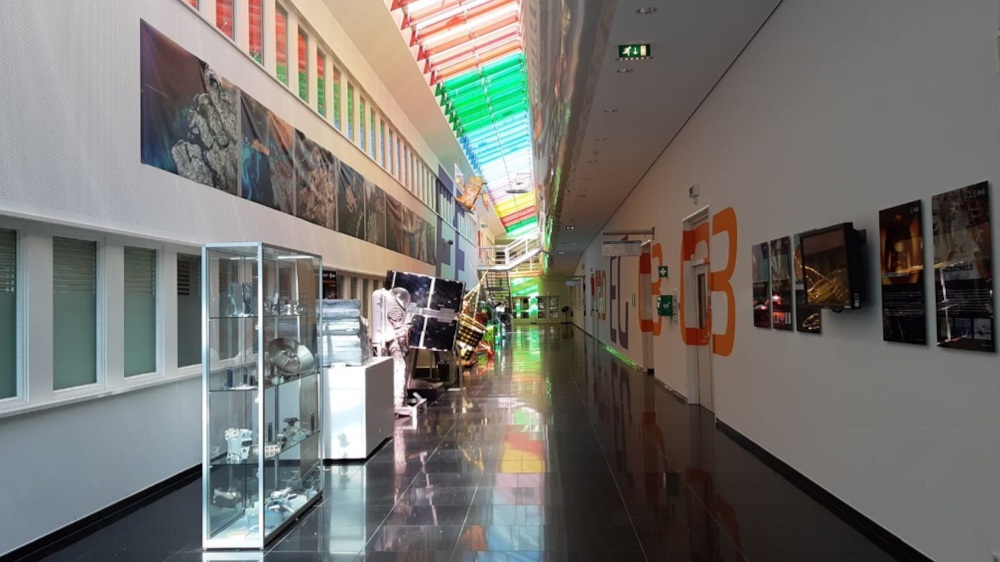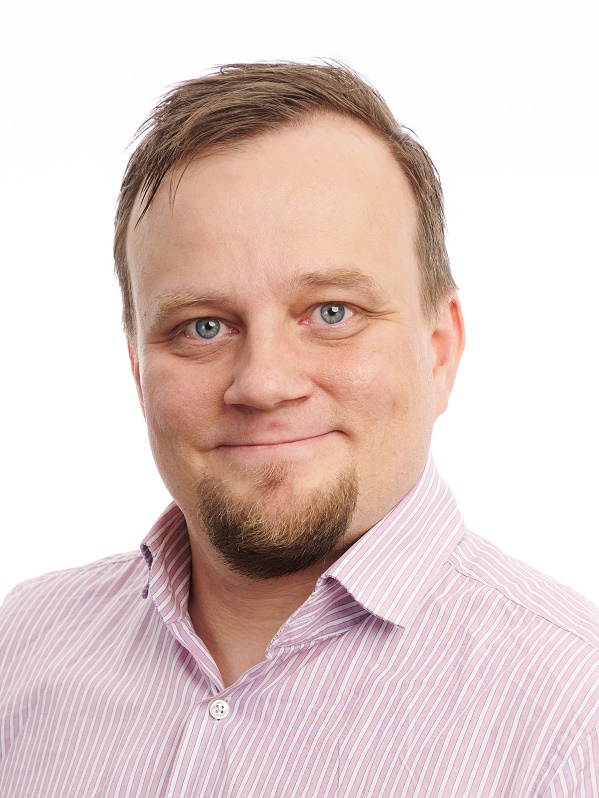
As a Space Engineer in the European Space Agency
Paavo Heiskanen works at the European Space Research and Technology Centre (ESTEC) of the European Space Agency (ESA) in Noordwijk, the Netherlands.
What is it like to work at ESA? How is your current job?
At the moment, I am Head of Section at the Quality Department of the Directorate of Technology, Engineering and Quality. I lead a team of about 20 people whose tasks include radiation hardness assurance of electronic components and the analysis laboratory for electronic components.
ESA is a very interesting and multicultural place to work. There are few places where it is possible to interact daily with top professionals in so many different fields. Our laboratory is also very well equipped, which makes it possible to carry out high-quality analyses. ESA is also an agency that sets its own administrative border conditions for its work. This will increase bureaucracy, but maintaining independence and fairness is worth it.
Is the Dutch language needed in ESTEC? Are there differences in the working culture there compared to the Finnish one?
ESA's official languages are English and French. You don't have to speak Dutch in ESTEC. Knowledge of Dutch would, of course, help us in our daily lives, but in the Netherlands one can survive in English almost everywhere. In fact, this slows down language learning because, in the same way as in Finland, if you try to speak Dutch to people, they often answer in English.
French, on the other hand, would be an absolute advantage. French remains the main language of European co-operation projects and if you wish to increase your chances of career advancement, there is a great deal of benefit in French skills.
Tell about your previous jobs and tasks
After graduation, I worked in the electronics industry at VTI technologies (now Murata Electronics Finland) for seven years in quality tasks. After that, I joined ESA for four years, where I worked as an electronics component engineer, for example. We returned to Finland, where I led the quality assurance team in the space segment for two years at ICEYE and for about a year and a half at Business Finland's EU Unit. Now it was the right time to return to work at ESA and I started my second position at ESA towards the end of 2023.
What made you interested in space issues?
I've been interested in space technology since I was little. I remember watching recorded space series over and over in the '80s and' 90s. Pioneer and Voyager probes and the space shuttle are the kind of technology I wanted to be doing.
What do you think is a good background training for the space sector? What is your training?
In the space sector, I would say in general, following a former Director of NASA: space is just a place. Space is an operating environment where science and business are carried out. In the space sector, all such factors are needed as in terrestrial projects. Engineers, project managers, lawyers, economists, information officers and many other fields of expertise are needed. I myself am a Master of Science in space technology from the Erasmus Mundus SpaceMaster Programme, my degrees are from the Helsinki University of Technology and the Luleå University of Technology. I also conduct a part-time doctoral thesis on quality management in the space industry.
How can ESA's work be seen concretely in Finland's space activities or in citizens' everyday lives?
Every Finn benefits from the technology developed by ESA every day. Accurate satellite positioning and time signals, weather forecasts, communication satellites and many other applications are so commonplace that they are no longer even noticeable. ESA also supports technological development in all Member States. There are many companies in Finland that carry out ESA projects. ESA also supports start-ups in its business incubator in cooperation with Business Finland.
How would you motivate people to apply for the space sector?
Space technology and space research are associated with some misconceptions, I would even say mysticism. The sector is considered extremely difficult and its role in Finland has been historically rather small. This is, however, an industrial sector in the same way as others. Finland is able to make world-class paper machines or ocean-going vessels; they are more expensive and complex than most space projects.
It is, of course, true that in the space sector there is a lot of special expertise, the acquisition of which requires determination and perseverance. I would say that if you are interested in space, you should familiarise yourself with it already during or after your studies. Even for myself, the space sector “opened up” only after seven years in industry.
How to apply for work at ESTEC? Is the application process difficult? How easily can a spouse find work in the Netherlands?
ESTEC has a number of different possible tasks. The recent graduates have their own Young Graduate Trainee Programme. In addition, there are different fixed-term posts of research fellows and researchers placed nationally. Access to ESA staff positions is mainly rather difficult, and their number depends on the Member State's contribution to ESA's budget. ESA also strives for a gender balance, which means that it is currently easier for non-men to find employment in ESA.

In addition to the staff positions, it is possible to work for ESA as an external contractor. ESA purchases certain services from personnel companies whose employees are located in ESA projects. However, ESA is not usually the first job; many applicants have experience in industry before the actual job in ESA.
The employment of spouses is a challenge in many international organisations. The same applies to ESTEC. Fortunately, the Netherlands is a truly international country where it is possible to work in English in several large companies. There are also other international organisations in the region that may be the way to finding employment.
How often do you visit Finland yourself?
After the coronavirus pandemic, ESA's remote working rules became much more flexible. At the moment, I work around two thirds of the time in the Netherlands and one third in Finland. So I am in Finland every month.
What are the most important lessons learned in your career so far?
The thing I always tell students is: “Rocket science is easy, political science is hard.” In order to succeed in international space projects, mere technical expertise is not enough. So-called soft skills, encounters with people, empathy and understanding the motives of others are particularly important.
What kind of goals or plans do you have for the continuation of your career?
So far, I am very pleased with my current position. ESA is currently undergoing a programme of changes to the organisation structure and operating methods to respond to the challenges of today. I look forward to what kind of new tasks this could enable.
Tell some special event/memorial related to your work
On consecutive days, I had two remote appearances where I presented my views on space technology. The first was the ESA-NASA-JAXA (Japan Aerospace Exploration Agency) Conference in Japan, where I spoke to a couple of hundred experts about the operating methods of the so-called new space industry compared to traditional space projects. The second was a visit in a school class of my friend’s child (third grade) where the pupils had prepared very difficult questions. Preparing for the latter was much more difficult and I was much more nervous.
Photos: ESA





